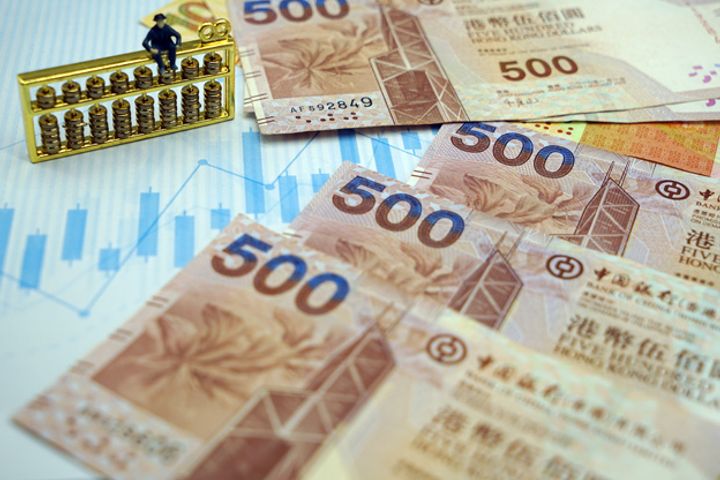 Hong Kong Breaks Months' Peace to Intervene in Forex Rate Decline, Hang Seng Slides
Hong Kong Breaks Months' Peace to Intervene in Forex Rate Decline, Hang Seng Slides(Yicai Global) Aug. 15 -- Hong Kong's monetary authority intervened in the exchange rate of the Hong Kong dollar for the first time since May after the rate hit the lower limit today.
The Hong Kong Monetary Authority bought HKD2.159 billion in the market, whichexacerbated concerns about liquidity and caused downward pressure to the Hong Kong bourse.
Hong Kong's Hang Seng Index began to fall rapidly after opening. At the close, the benchmark had declined 1.55 percent to the lowest point since early October last year.
According to the linked exchange rate system implemented in Hong Kong, the HKMA will buy US dollars from licensed banks at the exchange rate of HKD7.75 versus USD1. When it hits the lower limit of HKD7.85, it will sell US dollars to ensure that the linked exchange rate fluctuates around HKD7.80 against the US dollar.
"From the recent rapid expansion of the London Inter-bank Offered Rate and the Hong Kong Inter-bank Offered Rate spread, and the decline of emerging market currencies against the US dollar, the lower limit to trigger HKMA to defend its linked exchange rate system is likely to continue in the future," Zhao Wenli, chief strategist at CCB International, told Yicai Global.
Pressure From Turkish Lira, US Interest Rate Hikes
Affected by the Turkish crisis and other factors, the pressure on capital outflows in emerging markets has increased, Zhao added. Due to the collapse of the Turkish lira, the US dollar index, which compares the greenback against a basket of other currencies, has hit 96, resulting in widespread pressure on emerging market currencies.
CCB's Hong Kong liquidity index has deteriorated again, Song Lin, a strategist at the company said. "Capital outflows occurred in 17 out of 24 industries. Among them, the sectors with the largest capital outflow are software, automobile, and transportation."
The intervention by the HKMA may be just the beginning. In the future, the US Fed's continuing interest rate hikes, a stronger US dollar, and capital outflows from emerging markets are likely to continue to put pressure on the Hong Kong dollar, market analysts predicted.
"The key issue is interest rates," Zhou Hao, an economist at Commerzbank, told Yicai Global. The special administrative region follows the US monetary policy so the Hong Kong dollar's interest rate should theoretically follow the rise in the Fed rate hike cycle. However, the current situation is exactly the opposite. The Hong Kong dollar interest rate has been in a downward trend this year, while widening the interest spread between the two currencies.
The one-month US dollar Libor has risen from 0.8 percent in April to 2.06269 percent, while the one-month Hong Kong dollar Hibor is still at 1.26554 percent. Such spread will naturally lead to a selling pressure on the Hong Kong dollar.Due to the lower interbank interest rate in Hong Kong, the one-month Libor-Hibor spread widened from 0.08 percent to 0.37 percent, while the three-month spread widened from 0.24 percent to 0.32 percent, Song said.
The Hong Kong Special Administrative Region government has implemented the linked exchange rate regime and the currency board system since 1983. In the past 30 years, it has successfully stabilized the currency despite encountering repeated crises.
Editor: Emmi Laine